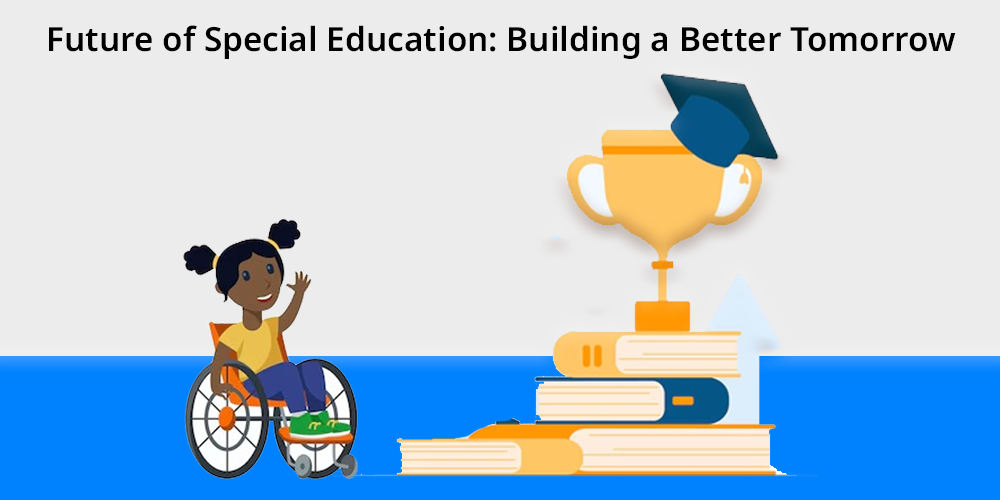
What if every child gets special tools and support to thrive in school and beyond? Special education is now addressing students’ needs and becoming important for learning.
Special education enhances students’ potential, nurturing their confidence, and creating an environment where differences are celebrated. With time it continues for the betterment of society.
As the world of education, people are exploring what education truly means. From advanced learning tools to inclusive learning and classrooms that embrace every ability.
Before proceeding in future read various types of special education for students with disabilities.
The future of special education is filled with purpose and growth. However, people should be open to adapt changes, compassionate minds, and a shared commitment to equity.
Let’s understand how special education is the best choice and how it guides us to build a better tomorrow for every learner.
Contents
8 Key Pointers: Future of Special Education
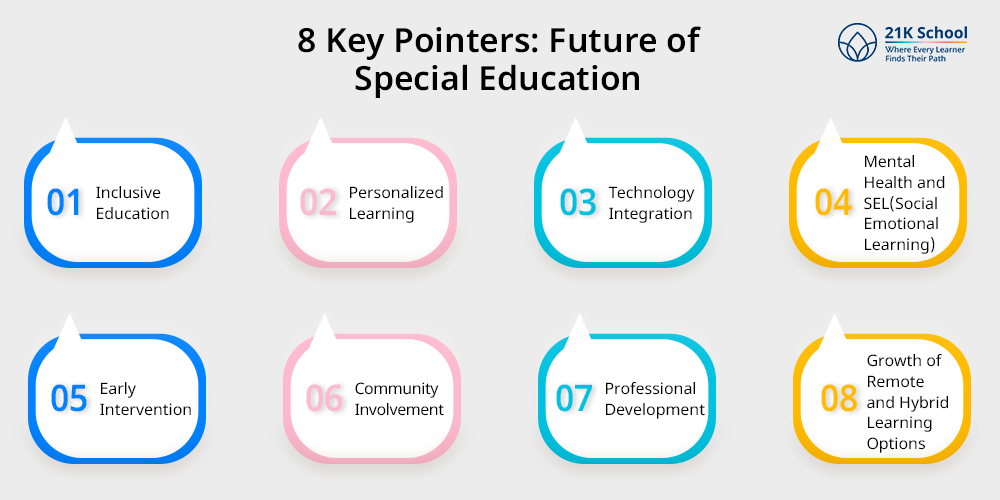
Here are some of the top pointers focusing on the future of special education:
1. Inclusive Education
Inclusive education plays a vital role in building the future of special education. It helps in integration of students with disabilities into mainstream classrooms with their developing peers.
This method is an ideal way in which instead of using segregated special education settings, schools and teachers focus on creating learning environments that are accessible and supportive for all students.
The main objective of this approach is to provide a sense of belonging and equal opportunities for all students to achieve their desired goals.
Understand the importance of inclusive education in student life.
With the help of collaborative teaching, flexible curricula, and peer support systems anyone can implement inclusive education a reality.
As a parent of special needs students you must read inclusive education vs special education .
2. Personalized Learning
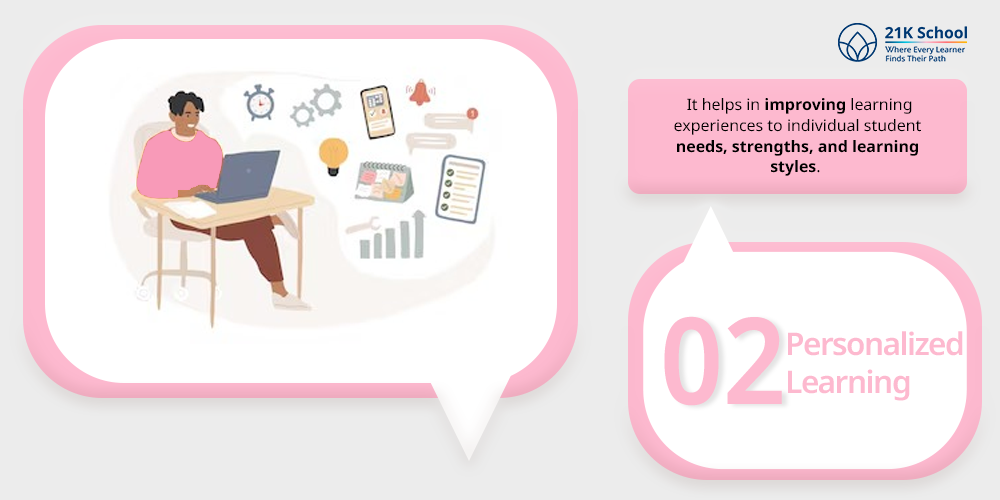
The future of special education is incomplete without personalized learning. It becomes an effective approach when combined with technology such as AI.
To revolutionize special education technology like AI can be a game changer. It helps in improving learning experiences to individual student needs, strengths, and learning styles.
Technology has the ability to create more effective and engaging learning environments for all kinds of students, especially special needs students.
Various digital tools used for educational purposes can monitor student performance, identify areas needing support, and adapt information accordingly.
This leads to desired results and high student engagement .
3. Technology Integration
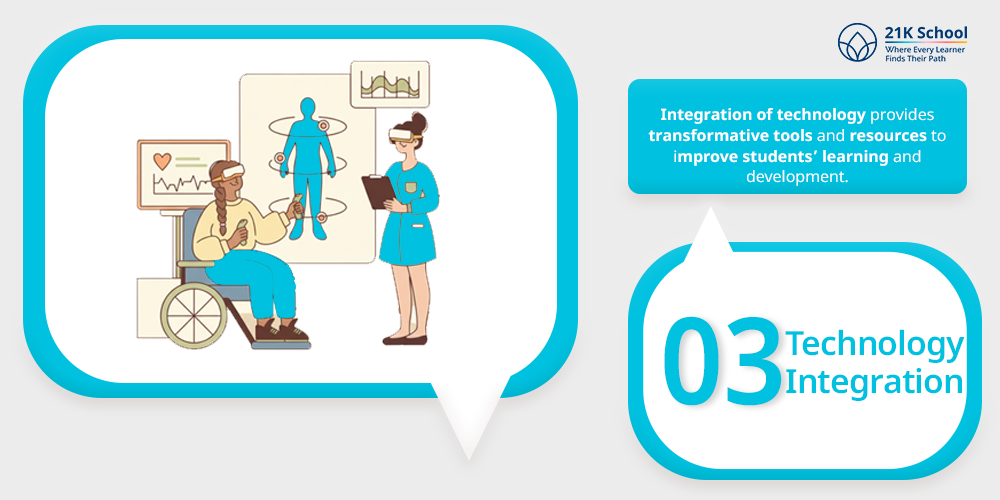
In special education, integration of technology provides transformative tools and resources to improve students’ learning and development.
It is the best way to enhance students with diverse needs. With time 21st century technologies like AI, virtual reality, and adaptive learning platforms offer personalized instruction.
Discover the importance of technology in education to implement it properly.
From text-to-speech tools to interactive apps these technologies are ideal to enhance communication, improve access to curriculum, enable progress tracking and data-driven instruction.
4. Mental Health and SEL(Social Emotional Learning)
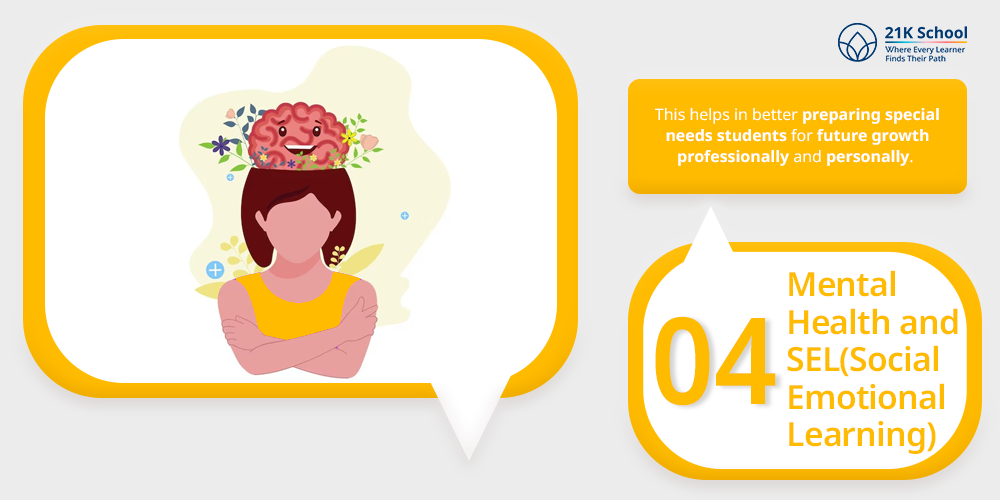
The integration of mental health support and social emotional learning is crucial for the future of special education and has a big impact on learning.
Must read the benefits of social emotional learning in student engagement.
Because it provides inclusive and supportive learning environments for students who love to learn new things.
Remember, both academic and socio-emotional needs are important for special education. This helps in better preparing special needs students for future growth professionally and personally.
To achieve all these schools like 21K School invest in counselors, therapists, and SEL-based curricula. It provides an opportunity to grow well.
Understand how to improve childrens mental health in today’s stressful life.
5. Early Intervention
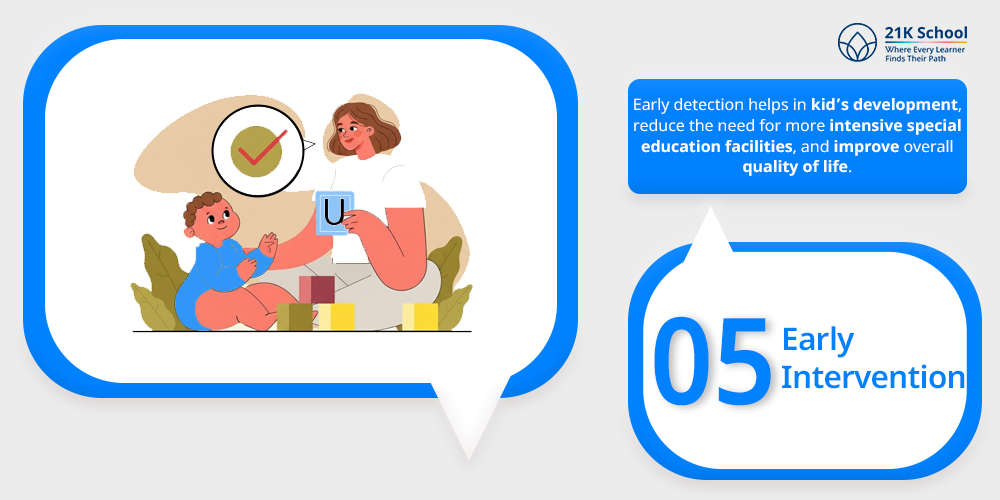
To make the future of special education stronger, early diagnosis and intervention is crucial. It is beneficial for those who have developmental delays or disabilities and their families.
Early detection helps in kid’s development, reduce the need for more intensive special education facilities, and improve overall quality of life.
Schools can ensure while guiding parents who can support children’s learning and development.
6. Community Involvement
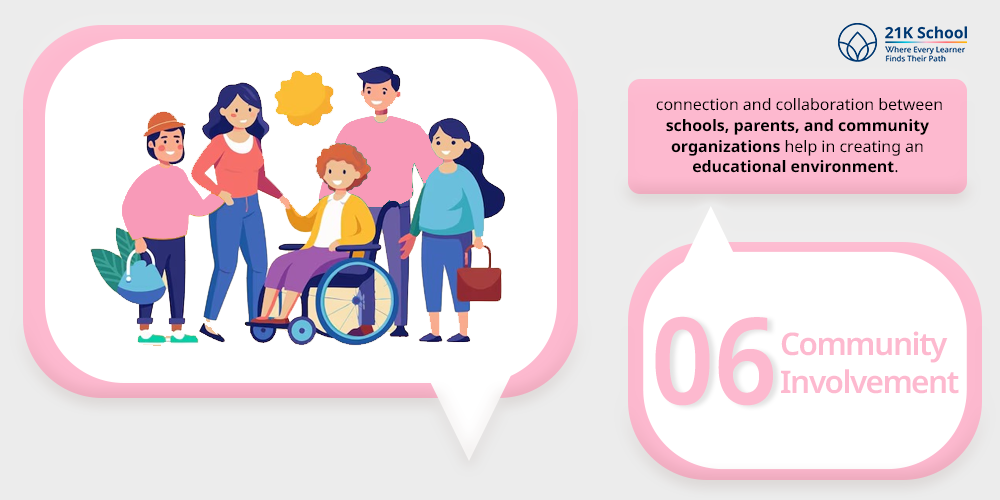
Community involvement in the future of special education considers inclusive environments and enhancing learning outcomes for students with disabilities.
In simple words, connection and collaboration between schools, parents, and community organizations help in creating an educational environment.
7. Professional Development
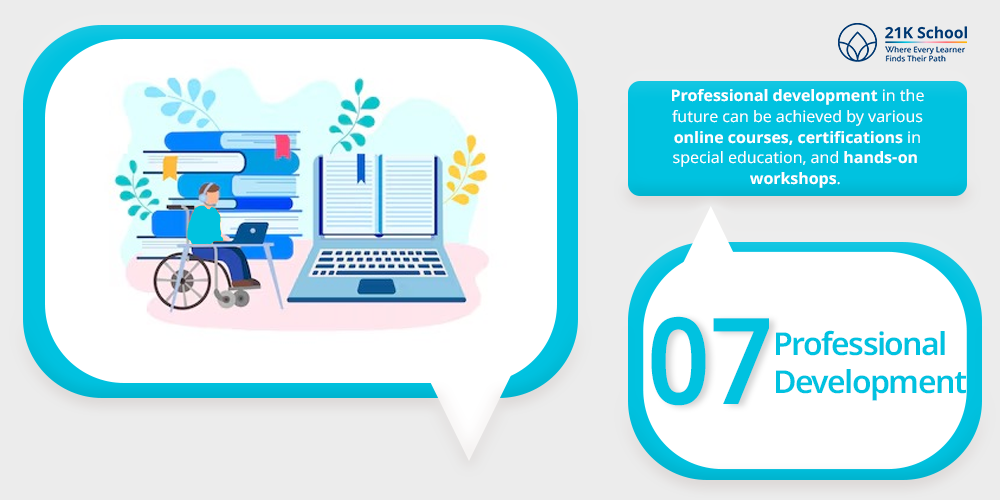
There are many approaches crucial to build the future of special education and professional development is one of them.
To meet the changing demands, educators require effective training in inclusive strategies, assistive technologies, and differentiated learning instruction.
Professional development in the future can be achieved by various online courses, certifications in special education, and hands-on workshops.
These will prepare them for diverse classroom settings and students.
8. Growth of Remote and Hybrid Learning Options
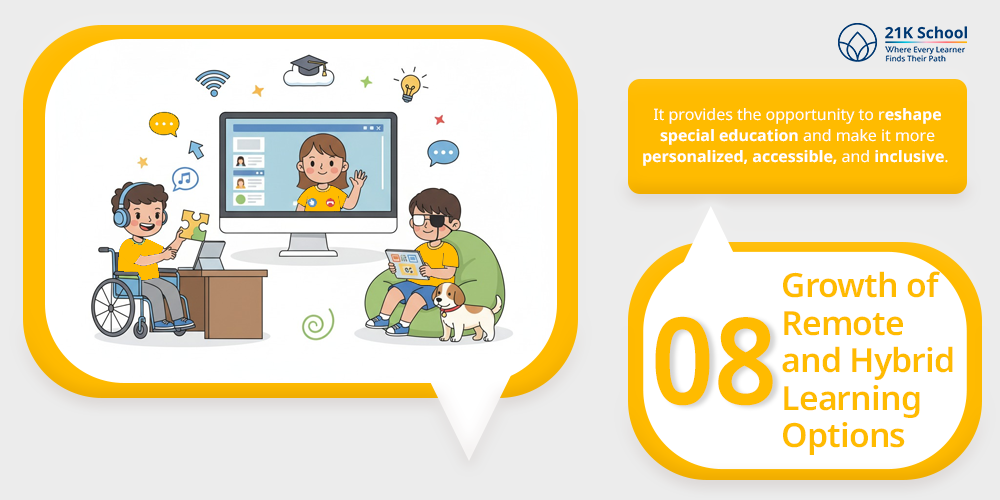
Growth of remote and hybrid learning options is a flexible approach designed for students who are unable to attend traditional or regular special education.
It provides the opportunity to reshape special education and make it more personalized, accessible, and inclusive. It has its own challenges.
However, these challenges can be overcome easily with early detection and effective solutions. The future of special education can be a home based model for students with disabilities.
Technological Advancements in Future of Special Education
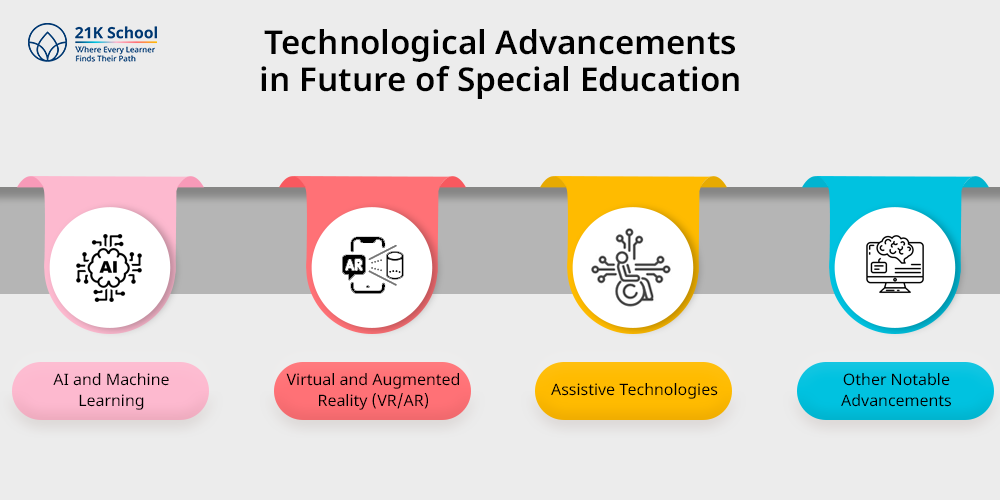
The future of special education highly depends on technological advancements. Especially in areas such as AI, virtual and augmented reality, and assistive technologies.
Let’s explore each to understand in detail:
1. AI and Machine Learning
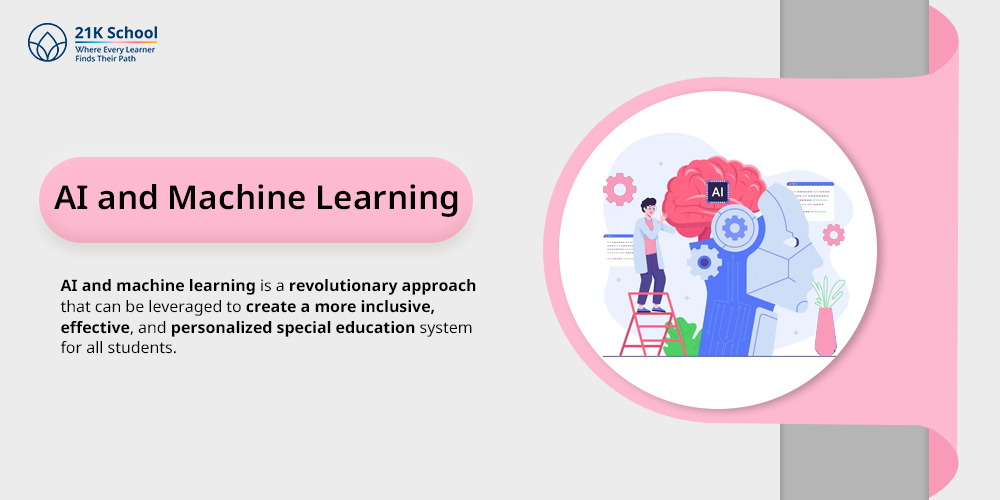
AI and machine learning is a revolutionary approach that can be leveraged to create a more inclusive, effective, and personalized special education system for all students.
By offering smart tutoring systems, real-time feedback, and predictive analytics, it makes learning easy. Explore the importance of AI in special education .
2. Virtual and Augmented Reality (VR/AR)
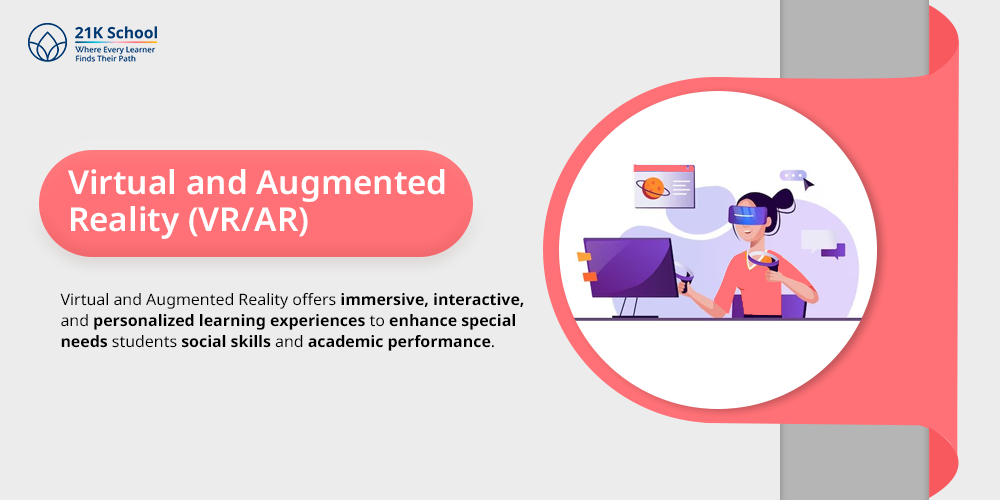
Virtual and Augmented Reality offers immersive, interactive, and personalized learning experiences to enhance special needs students social skills and academic performance.
The method is helpful for those who are dealing with autism or sensory challenges.
3. Assistive Technologies
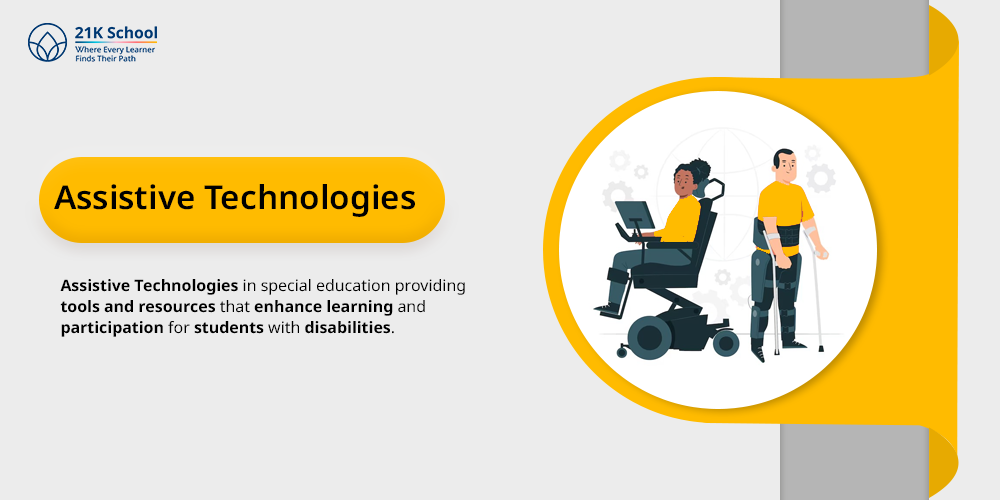
Assistive Technologies in special education providing tools and resources that enhance learning and participation for students with disabilities.
Tools include speech-generating devices, mobility aids and reading software. The main objective is to ensure disabled students are learning in inclusive and accessible educational environments.
4. Other Notable Advancements
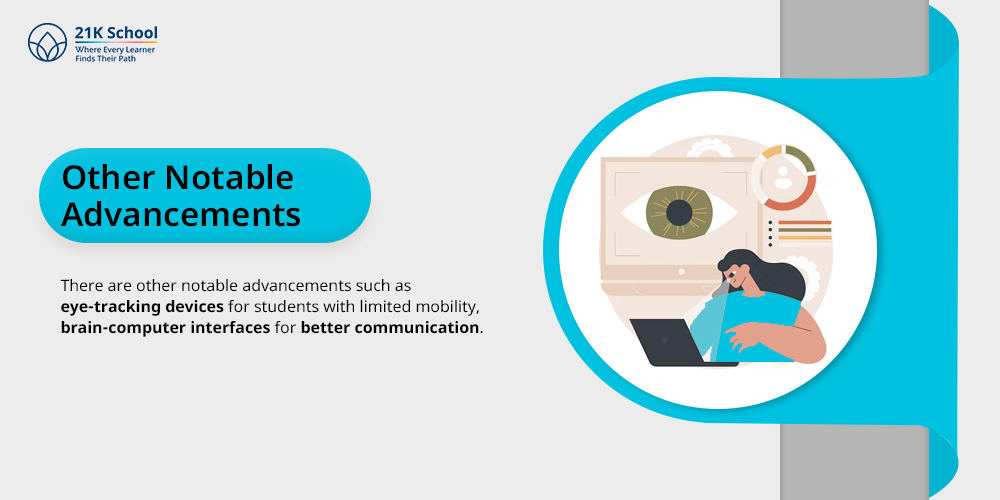
There are other notable advancements such as eye-tracking devices for students with limited mobility, brain-computer interfaces for better communication.
Wearable devices for monitoring emotional states and exam stress levels is also one of the effective technological advancements in the future of special education.
Role of Technology in Future of Special Education
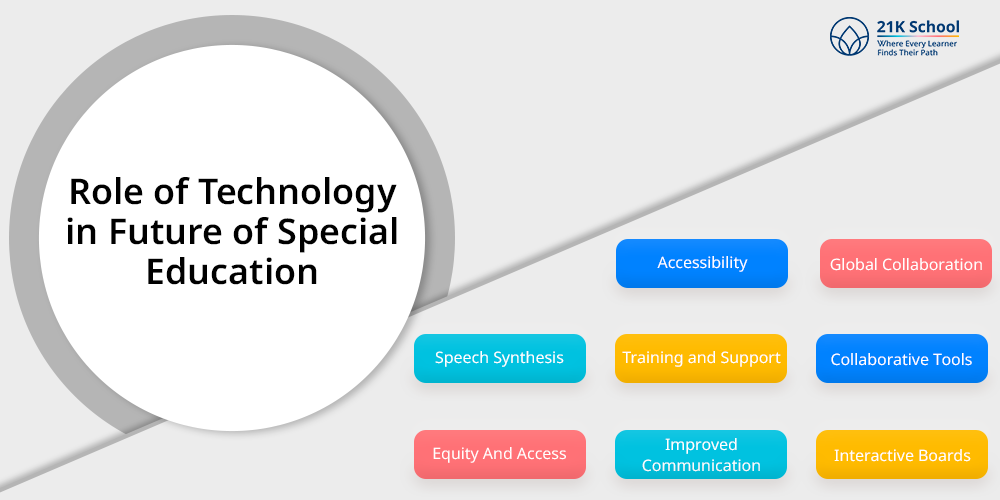
Technology plays a crucial role in the future of special education by offering tools that enhance accessibility, personalization and student engagement with diverse learning needs.
Here’s an elaboration:
1. Accessibility
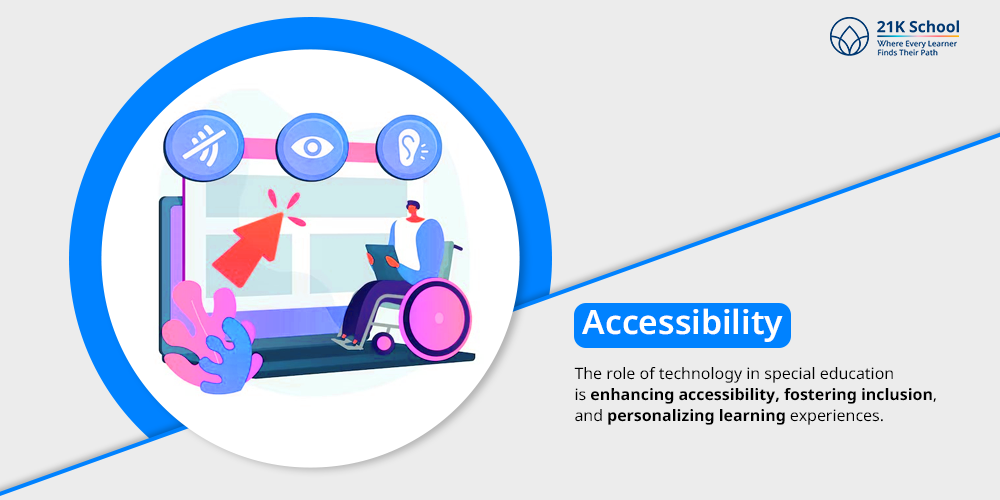
The role of technology in special education is enhancing accessibility, fostering inclusion, and personalizing learning experiences.
Facilities such as closed captions, screen readers, and customizable text remove learning barriers while learning.
2. Global Collaboration
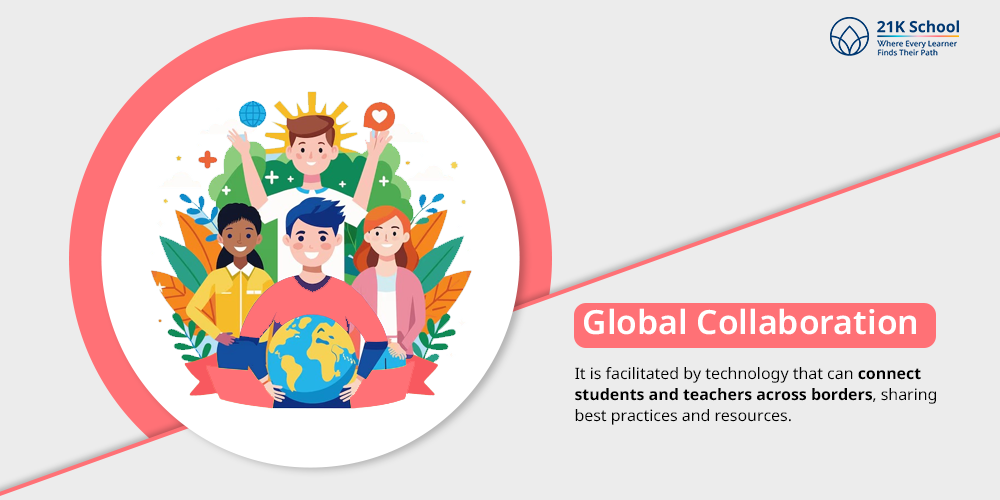
In the growing world global collaboration plays an important role especially in special education.
It is facilitated by technology that can connect students and teachers across borders, sharing best practices and resources.
3. Speech Synthesis
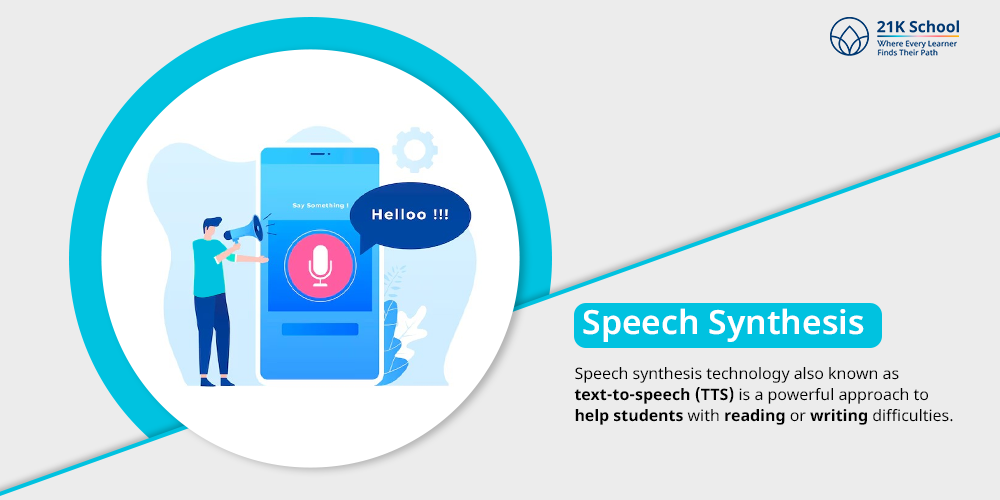
Speech synthesis technology also known as text-to-speech (TTS) is a powerful approach to help students with reading or writing difficulties.
Through this students will better understand the material and work on their assignments clearly.
4. Training and Support
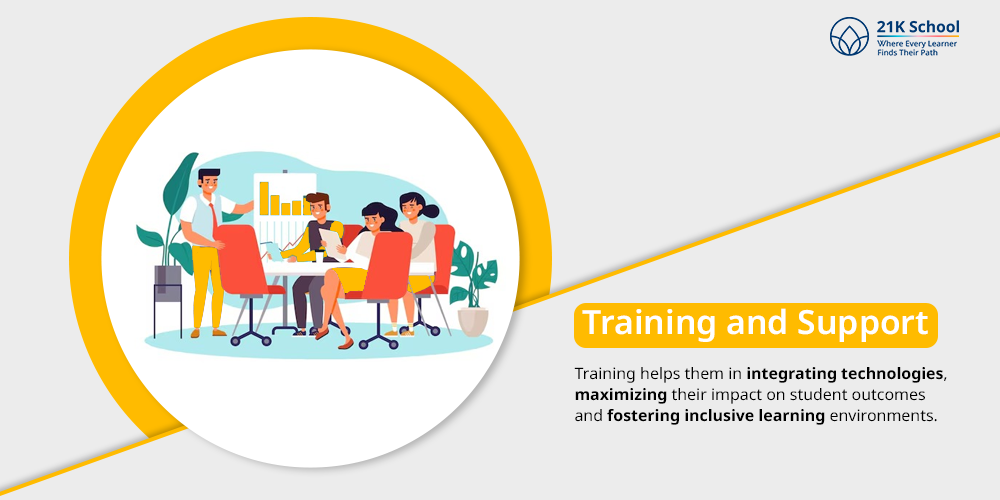
Teachers training and support is crucial to better surrounding students with disabilities.
Training helps them in integrating technologies, maximizing their impact on student outcomes and fostering inclusive learning environments.
5. Collaborative Tools
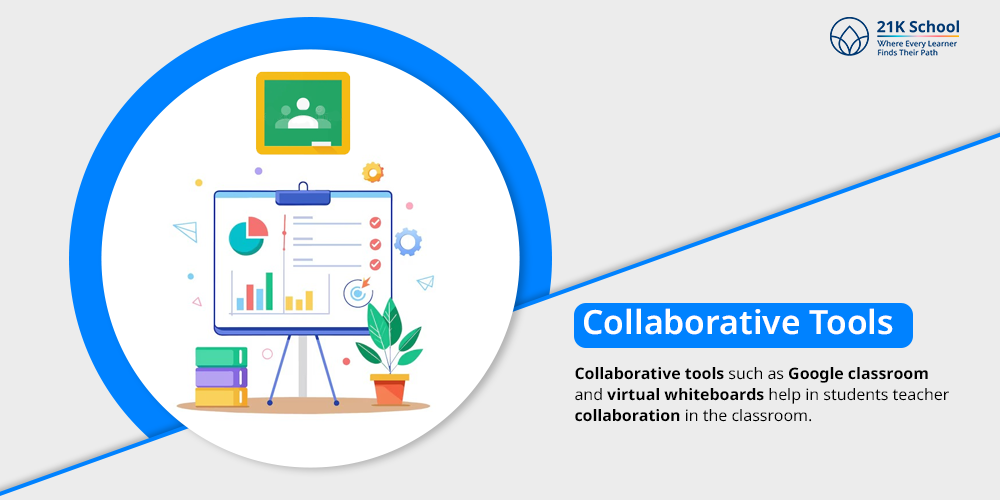
Collaborative tools such as Google classroom and virtual whiteboards help in students teacher collaboration in the classroom.
These tools enhance learning, communication, and social interaction for students with disabilities.
6. Equity And Access
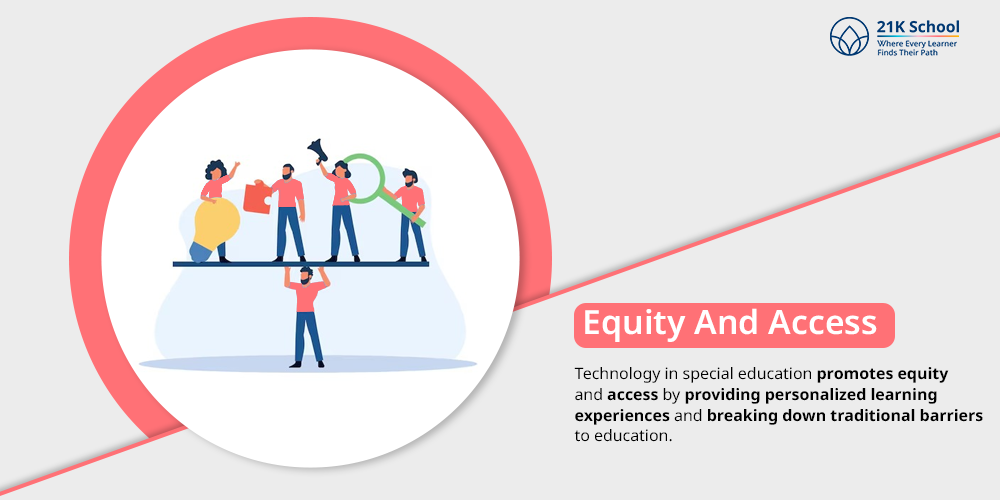
Technology in special education promotes equity and access by providing personalized learning experiences and breaking down traditional barriers to education.
7. Improved Communication
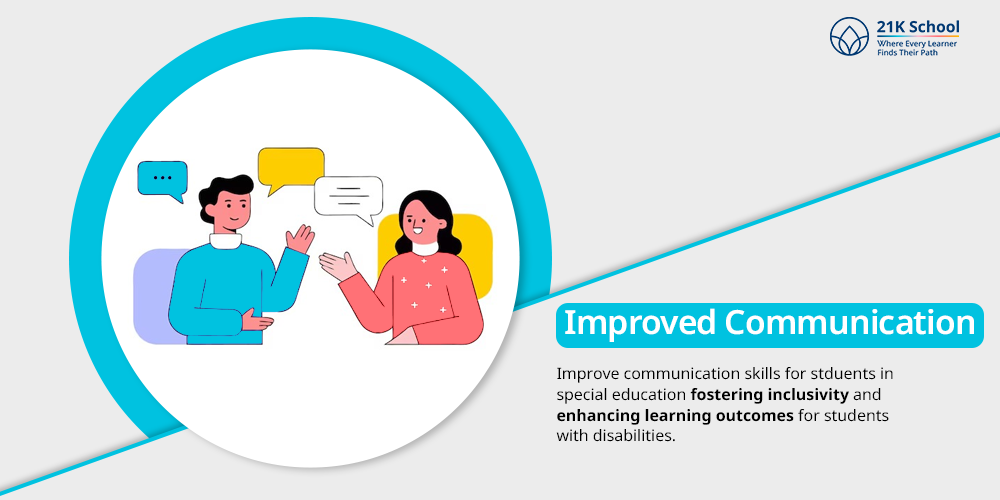
Improve communication skills for stduents in special education fostering inclusivity and enhancing learning outcomes for students with disabilities.
Students with disabilities mainly use non-verbal or minimally verbal communication through pictures, symbols or voice-output devices. This makes learning easy.
8. Interactive Boards
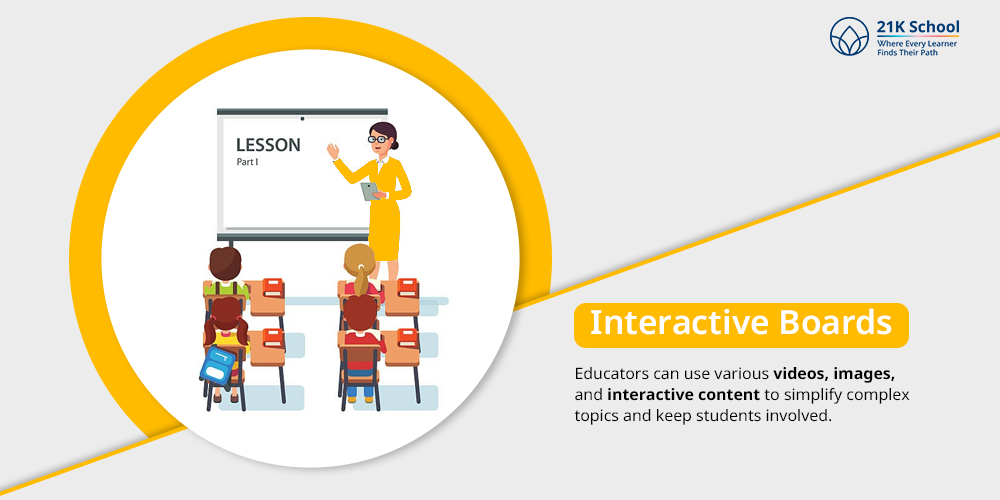
Smartboards and interactive panels make students’ learning more visual and engaging.
Educators can use various videos, images, and interactive content to simplify complex topics and keep students involved.
Future Challenges of Special Education and How to Overcome Them
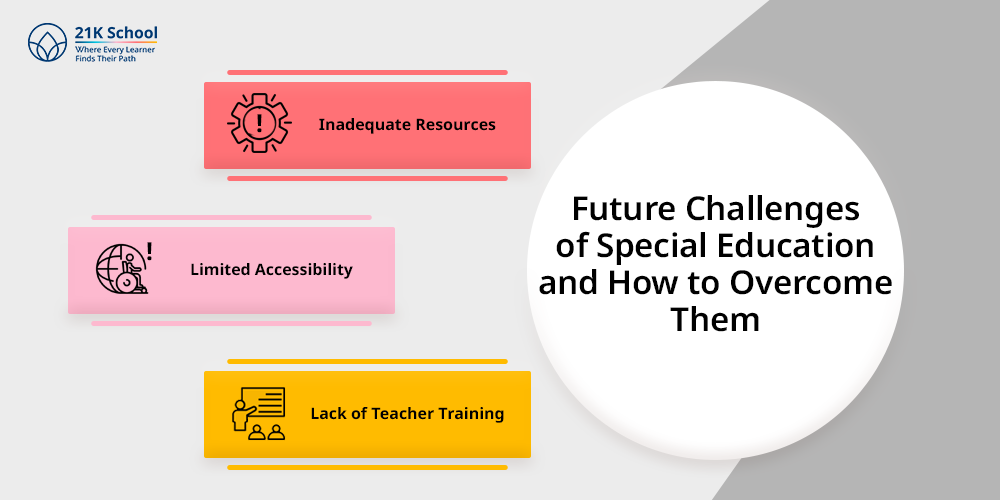
Future challenges in special education include inadequate teacher training, resource limitations, social stigma, and the need for more inclusive teaching methods.
By understanding these challenges and looking for solutions to overcome them ensures success. Some common challenges includes:
1. Inadequate Resources
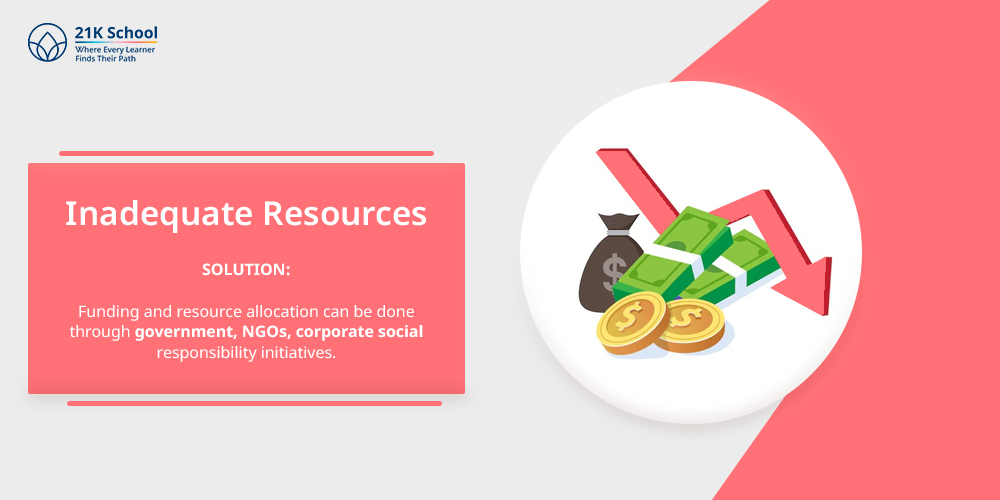
Inadequate resources is a common challenge faced by many special education programs.
This happens due to insufficient funding for materials, assistive technology, and qualified staff. This challenge mostly occurs in rural areas.
Solutions:
Funding and resource allocation can be done through government, NGOs, corporate social responsibility initiatives. Schools can explore grants and fundraising opportunities to supplement existing budgets.
However, making effective use of resources is a must. Encourage coordination and outside support to overcome this challenge.
2. Limited Accessibility
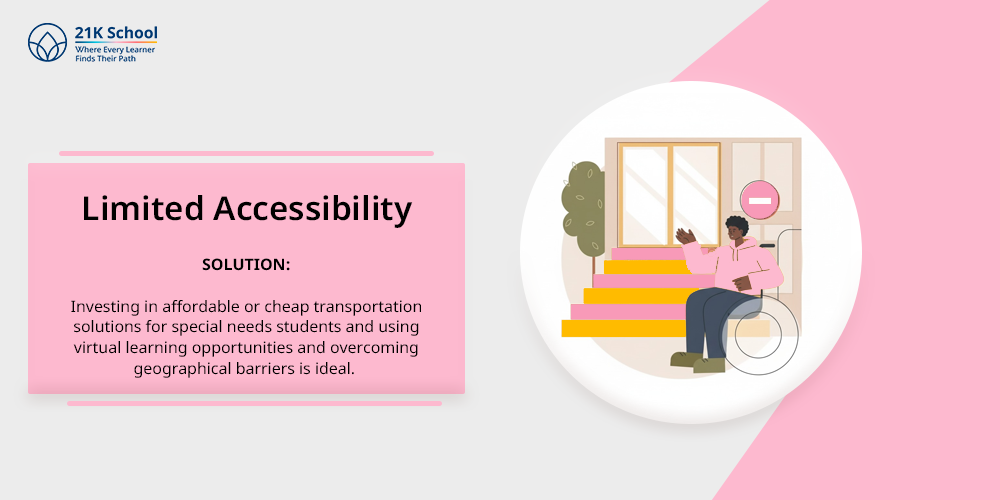
Geographic disparities, physical barriers in buildings, and lack of transportation can hinder access to special education services, especially in rural and remote areas.
Solutions:
Investing in affordable or cheap transportation solutions for special needs students and using virtual learning opportunities and overcoming geographical barriers is ideal.
Identify some essential virtual learning platforms to overcome limited accessibility.
3. Lack of Teacher Training
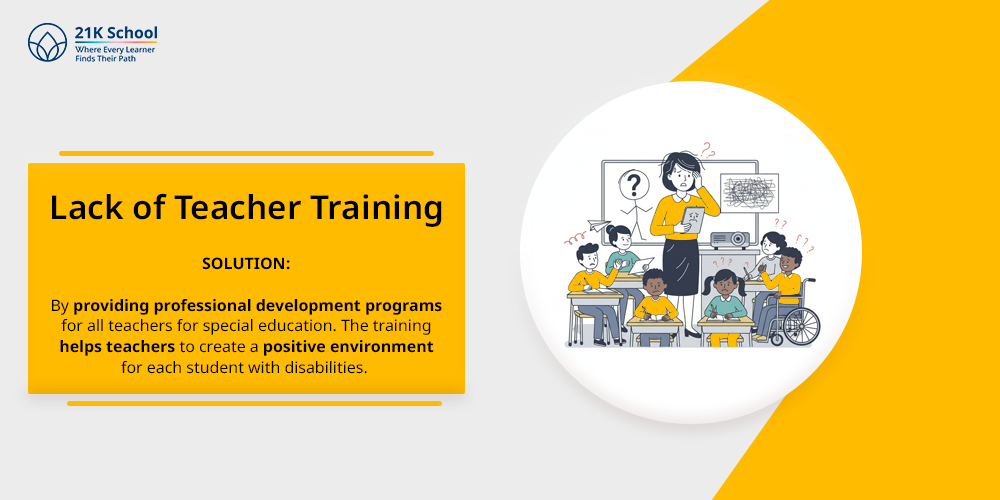
Lack of teacher training is a common problem in both rural and urban areas.
Many teachers don’t have sufficient training in special education methodologies, inclusive teaching practices, and strategies for addressing diverse learning needs.
Solutions:
By providing professional development programs for all teachers for special education. The training helps teachers to create a positive environment for each student with disabilities.
It also encourages collaboration between general education and special education teachers.
Conclusion
The future of special education offers transformative and quality life to students with disabilities. However, the approach is used with commitment, innovation, and compassion.
As we embrace inclusive practices, advanced technologies, and stronger community ties, all move closer to a world where every child, regardless of ability.
If your kid is interested in programming from a young age, you must read coding for students with disabilities .
By understanding the existing problems and staying adaptable, anyone can truly build a better tomorrow for all learners. Discover why online learning for special needs students is best in 21st century.
